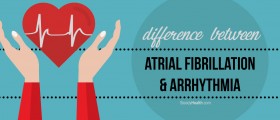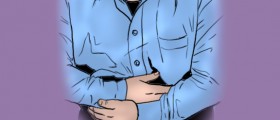I did have some nuts today and noticed above someone mentioned nuts can cause these symptoms. I am definitely going to cut out the nuts and see what happens.
Nice to know there are others with this problem and I'm not alone...
Loading...
Loading...
Loading...
Loading...
Bad digestion runs in my family. Mine is the worst. I had to go see a gastroenterologist before I got well. Basic doctors will give you meds, but I had bad reactions to all of the strong ones. The gastro guy actually helped me heal without meds. The problem is that your vagus nerve is in your esophagus. When your esophagus gets beat up from digestive acids backing up into it, the nerve gets exposed. If the nerve spasms strong enough, it feels like a heart attack. Also, your heart races like no tomorrow.
The things that trigger lots of acid are: any food you have trouble digesting, stress. What makes acid back up: all the prior stuff, plus eating regular food more than three hours before bed, or eating and then being stationary afterward (in a car, at a desk. laying down is the worst).
It took months, but my gastro guy broke it down into two goals:
1) Fix the recurring problem. Encourage digestion by: Avoiding foods I have problems digesting (corn). Eat small meals. Chew very, very well. Take digestive (papaya) enzymes. Take gas x after a meal, not an antacid (if my stomach doesn't have enough acid to digest the food, the food sits in my stomach and ferments. Only take antacid on an empty stomach, an hour before bed).
2) Give my esophagus time to heal by: a) Raising the head of my bed by a few inches. My esophagus was so beat up that the sphincter at the bottom didn't close any more. When I laid down, the acid simply ran back up from my stomach, and ruined it more. b) Don't eat any closer than three hours before bed, and make sure I MOVE instead of tv or computer time. This makes sure that my stomach is empty by bedtime. c) Take a mild antacid like Pepcid or Zantac, an hour before bed. Lack of food and the antacid, will keep your stomach from making problems while you're laying down. d) Give it enough time to heal. It'll take a few months for your body to regrow the lining of your esophagus. That lining is what protects the Vagus nerve. If the lining is shot, the nerve will be unprotected. When the nerve has a chance to heal, the burping will calm down.
If you need something besides Pepcid, try Mylanta or Pepto Bismol RIGHT before bed. Don't rely on them if you ate before bed, though. It'll coat your esophagus all right, but it'll just keep the food from digesting and the problems won't show up until later. Like the middle of the night. Trust me on that one.
It sounds like a lot of work, but I don't take any meds at ALL, now. Yeah, I eat dinner earlier, but it's worth it.
Loading...
For me I believe condition linked with hiatus hernia.
Loading...
Loading...
Loading...
Loading...
You asked why this stopped at the hospital and started again when you got home. If you're like me, the PVC's (or PACs...the symptoms are exactly the same and I have both. Most people do to varying degrees)... anyway, the PVCs stop when your heart rate elevates. So, going to the urgent care could have raised your heart rate and the arrhythmia went away temporarily.
This is a good sign, actually. If you have the arrhythmia when your heart rate is elevated, that might be cause for a concern. This is why doctors do the stress test. I had one on a treadmill 20 years ago in my early 20's. The arrhythmia was only present as my heart returned to a resting rate.
I do think the vagus nerve has a lot to do with things. And, since the nerve runs past most of the organs in the body, to include the intestines and stomach, digestive issues can affect heart rhythm. Therefore, PVCs and PACs are often not a sign or heart trouble but of digestive or other issues. Of course, they can be and should be checked out if they are severe or are accompanied by other symptoms such as shortness of breath and lightheadedness. The problem, of course, is that these abnormal rhythms (not actually a skipped beat but a premature one followed by a stronger than normal one) can CAUSE stress, which can cause symptoms. You must be the best judge of your own health. Listen to your body. And, listen to the doctors if they tell you all is well with your heart.
And then, seek answers. :) Here's what I have found:
1. Magnesium. 200-400 mg a day. Since I started taking it, my PVCs and PACs have decreased in severity enough that I can relax. And, when they do occur, they don't feel as strong. I don't feel them in my throat. Those of you who suffer from them will know what I mean by that!
2. Eat. But not too much. I have found that if I skip a meal or over eat, the irregular beats increase. I think the first has to do with electrolyte imbalance, the second with digestive issues and the vagus nerve.
3. Exercise. If you are not having the rhythms while you exercise, you don't have to worry that you will die of a heart attack while doing it. I know you have worried. We all do. But, a stronger heart is a healthy heart. Ease your mind a bit (and your stress, which IS a factor) by knowing that your heart is strong and can handle a little flippity floppity now and then :)
4. Salt. There was a time when I was on the bandwagon of no salt. My arrhythmia were horrible then. Since adding salt back into my diet, the arrhythmia got better. salt (along with magnesium, potassium and calcium) are electrolytes. Your body, and your heart, need them. Just be sensible about amounts, and use a good quality sea salt that has not been refined beyond usefulness.
5. Water. Make sure you get enough of it. A good rule of thumb is to take your body weight in pounds, divide in half, and drink that amount in ounces. So, I am 160. I should be drinking 80 ounces of water a day (or 10 cups of water). If you drink coffee, alcohol, or live in a dry or hot climate or sweat, add another glass or two of water.
6. Wheat. I am not an anti-gluten fanatic. However, I have noticed when I eat bread, within an hour I am burping and having arrhythmia. Every single time. Now, whether that means I am gluten sensitive or what, I don't know. But, there is a definite correlation between wheat and the arrhythmia (and the burping suggests to me a digestive issue and the vagus nerve involvement). Try cutting out wheat for a few days and see what happens. Add it back in and see what happens. Listen to your body. Don't forget, there is a wide variety of other whole grains out there. Millet, quinoa, rye, buckwheat groats, whole oats, etc. And, provided you are not gluten sensitive, even whole wheat is fine. Try buying wheat berries, kamut, farro, etc., and cooking them like a hot cereal or adding them to soups, etc.
Good luck and be healthy! :)
Loading...
Lunazen, Thank you for your very informative post. I have the exact symptoms you mentioned, including the premature beat followed by a pause and then a hard beat (the hard beat is scary, more like a severe contraction, I call it the thump). I also have the fullness in the throat and the belching. I too noticed the relation to over eating and eating wheat. I have had a irregular heartbeat my whole life, but it goes away when I exercise. I have never had shortness of breath or lightheaded news, so besides the PVCs I think my heart is Ok. I eat a low salt diet but I may add some more sodium back and try the magnesium. I often find a banana calms me down quite a bit. Anyway, great post and advice, thanks.
Loading...
Loading...
mostly feel this when Im walking - say its not my heart.
scared to go out walking
Loading...
good luck I am going back to bed..no more HIgh fat foods for me
Loading...
Swallowing too much air. Had a massive panic attack once that left me fearing of getting another one like it. Began noticing that as I became anxious I would start swallowing more than usual, which, in turn, filled my chest with pressure from all the swallowed air.
Loading...

















